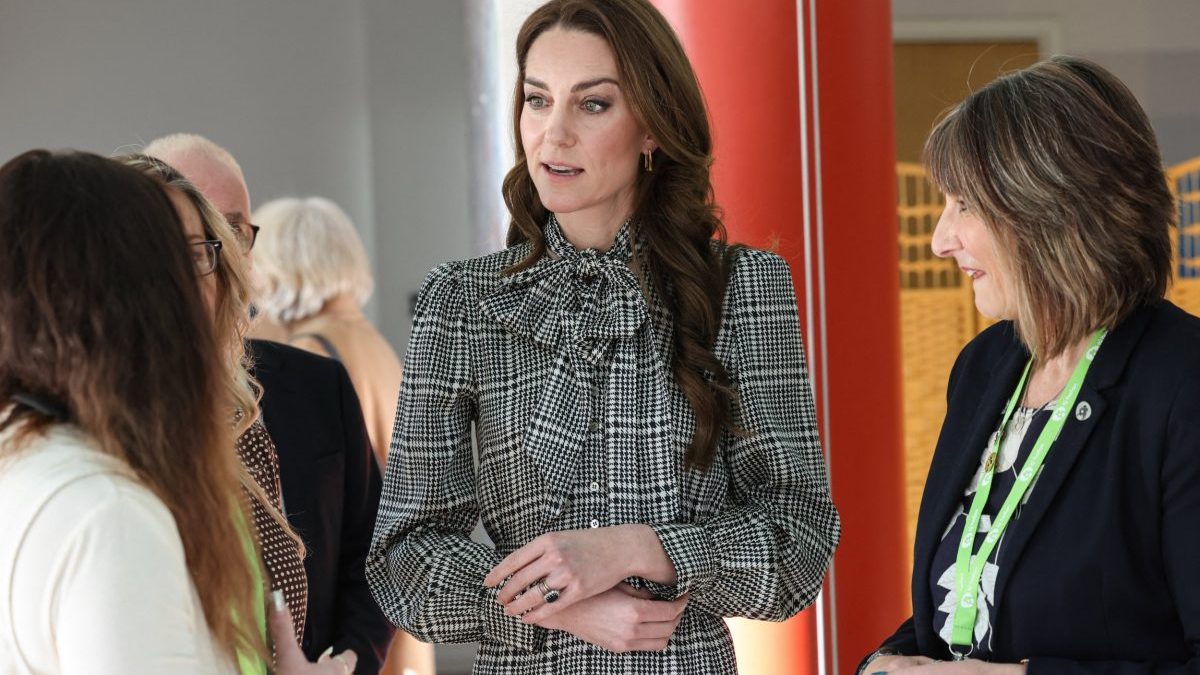Our collective parenting is in a truly worrying place. Last week, the Kindred Squared early years charity delivered a chilling report that should be a wake-up call. The starkest of many troubling findings was that whereas 90 per cent of parents believe their children are ready for Reception class, only 33 per cent of teachers do.
Early years teachers now help toilet train four-year-olds, show them how to dress themselves and model how to eat independently. Another finding stood out: children try to swipe book pages like a screen. They are simply mirroring behaviour they see every day, at home, in their own parents’ habits.
It’s not just children who are addicted to screens – many parents cannot resist the silent, relentless pull of smartphones. We reach for them constantly. When we do sit down with our children, the temptation to check that phone is often too strong. Screens aren’t just distracting us from our family, they rob us of meaningful connection.
Eye contact is the basis of communication. It’s essential for children’s social and emotional development. Yet how many of us find ourselves scrolling while our children try to talk to us? It’s a behaviour that sends a clear message: the screen world matters more than the real world. If we don’t start enforcing boundaries, our children will inherit our addiction.
Screens will become surrogates for social interaction, harming their capacity for focus and real-world connection. Consequently, children will enter school without the ability to read a book or hold a pencil. Instead, they will swipe, scroll and scroll some more.
The impact of being on our phones is set out in a report today by the Princess of Wales’s charity, the Royal Foundation Centre For Early Childhood, as part of her “30 crucial life skills” to be learned in early childhood. The 106-page “Shaping Us Framework” includes a focus on the importance of fully engaged eye to eye contact with children.
The report, which Princess Kate wrote the foreword for, states: “Given the vital importance of the early acquisition of communication skills for all aspects of human development, there is growing concern about ‘technoference’ (technology-based interference, such as an adult looking at a smartphone during a conversation) impeding children’s communication skill development by reducing critical child-caregiver interaction.”
So, what to do? It’s simple, but not easy: take back control. Parents should model better habits: reduce our own screen time, make a concerted effort to put down phones, look our children in the eyes, and engage with them fully. A quarter of pupils aged five to seven have smartphones. But they have no place in the hands of primary school students. There is simply no reason a child under the age of 11 needs one.
We also need to stop pretending teens can responsibly manage their screen time. They can’t. If we want them to develop healthy relationships with technology, we need to set clear limits. We should be directly controlling their screen usage.
Meal times cannot be a time to check emails, scroll social media, or flick through headlines. They should be a time for connection and conversation. Learn how to use the screen time controls on your children’s phones. My friend’s breakfast times with her 15-year-old twins have been transformed by pushing back their screen start time to 8am from 7:30am.
It’s time to bring tough love back into parenting. We can no longer be passive bystanders to the digital age. We have to set firm boundaries and enforce them. Our children’s futures depend on it, and so does our ability to truly connect with them.
If we want to help our children grow into well-rounded, emotionally intelligent individuals, it starts with us putting down our phones, looking them in the eye, and saying “no” when necessary.
